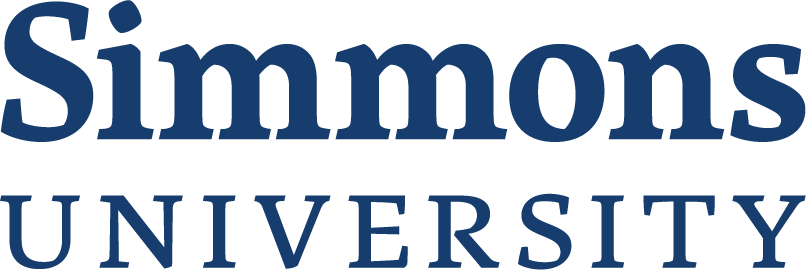SEQUITUR Issue 9.2, Call for Submissions
Posted January 17, 2023
CFP: “Affectation”
NEW Deadline: January 23, 2023
The editors of SEQUITUR, a graduate student journal published by the Department of History of Art & Architecture at Boston University, invite current and recent MA, MFA, and PhD students to submit content on the theme of “Affectation” for our Spring 2023 issue.
In 1896, American poet Richard E. Burton published a short opinion piece in the Transcendentalist magazine The Dial. Burton’s editorial “Originality in Literature” puts forth his concerns about a tendency of new writers to be “imitative and unnatural” in their work. Burton terms this proclivity “affectation,” which he considers in opposition to originality when he writes: “The whole question of affectation versus originality, then, comes to this: Is a man’s manner, his method of expression, natural and honest?”
Burton’s critique participates in a long-standing discourse in literary studies which assesses affectation, or artificiality, as an obstruction of the author’s true voice. Additionally, his question asks us to ponder the dishonesty of affectation, and urges us to consider possible discrepancies between a person’s self-presentation and their inner nature.
This concept has also assumed a central role in the discourses of art and architectural history. Nineteenth-century English writer and critic John Ruskin considered art that strayed from the true representation of nature as an affectation, a moral failure to be avoided in creative work. Actors, writers, artists, architects, craftspeople, and patrons might all assume or employ affectation to provoke a particular response, achieve a desired effect, or obscure their perceived shortcomings. Implicit in the term is not only a disconnect between manufactured impression and reality, but a process by which true nature, identity, and perhaps materiality are inherently transformed.
For this issue of SEQUITUR, we seek emerging scholarship that engages with instances and embodiments of affectation in art, architecture, and material culture from antiquity to the contemporary period. Possible subjects include, but are not limited to: interior vs. exterior; public vs. private; presentational strategies; materiality; caricature; portrayal (self or other); illusion; imitation; originality; facade; artifice; visage; artistic process; manipulation of image or materials; vanity; beauty; unattractiveness; appearance; extravagance; deception; frivolity; ornament; embellishment; status; greed; luxury; masquerade; propaganda; trickery; guise; veneer; mask and masking; pretense; disguise; the history of dress; popular culture; costume; mannerism; performance; and double consciousness.
SEQUITUR welcomes submissions from graduate students in the disciplines of art history, architecture, archaeology, material culture, visual culture, literary studies, queer and gender studies, disability studies, memory studies, and environmental studies, among others. We encourage submissions that take advantage of the digital format of the journal.
Founded in 2014, SEQUITUR is an online biannual scholarly journal dedicated to addressing events, issues, and ideas in art and architectural history. SEQUITUR, edited by PhD students at Boston University, engages with and expands current conversations in the field by promoting the perspectives of graduate students from around the world. It seeks to contribute to existing scholarship by focusing on valuable but often overlooked parts of art and architectural history. Previous issues of SEQUITUR can be found here.
We invite full submissions in the following categories:
- Featured essays (1,500 words)
- Essays must be submitted in full by the deadline below to be considered for publication. Content should present original material that falls within the stipulated word limit. Please adhere to the formatting guidelines available here.
- Visual and creative essays
- We invite M.Arch. or M.F.A. students to showcase a selection of original work in or reproduced in a digital format. Submissions should consist of a 250-word artist statement and up to 10 works in .jpeg, html, or mp4 format. All image submissions must be numbered and captioned, and should be at least 500 DPI. We welcome various kinds of creative projects that take advantage of the online format of the journal.
We invite proposals (200 words max) for the following pieces:
- Exhibition reviews (500 words)
- Exhibitions currently on display or very recently closed are especially sought. We are especially interested in reviews of exhibitions in the Massachusetts and New England area.
- Book or exhibition catalogue reviews (500 words)
- Reviews of recently published books and catalogues are especially sought.
- Interviews (750 words)
- Preference may be given to those who can provide audio or video recordings of the interview. The author must include a full written transcript of the recording.
- Research spotlights (750 words)
- Short summaries of ongoing research written in a more casual format than a formal paper.
How to Apply
When submitting, please remember:
- All submissions and proposals are due January 23, 2023.
- Email all materials to [email protected].
- Include “SEQUITUR Spring 2023” and type of submission/proposal in the subject line, and your name, institution and program, year in program, and contact information in the body of the email.
- Text must be in the form of a Word document, and images should be sent as .jpeg files. While we welcome as many images as possible, at least ONE must be very high resolution and large format. All other creative media should be sent as weblinks, html, or mp4 files if submitting video or other multimedia work.
- Please remember to adhere to the formatting guidelines available here.
- Please attach a recent CV and a brief 50-word bio with submission.
Authors will be notified of the acceptance of their submission or proposal the week of January 30, 2023 for publication in May 2023. Please note that authors are responsible for obtaining all image copyright releases before publication.
If you have any questions, please do not hesitate to contact the SEQUITUR editors at [email protected].
